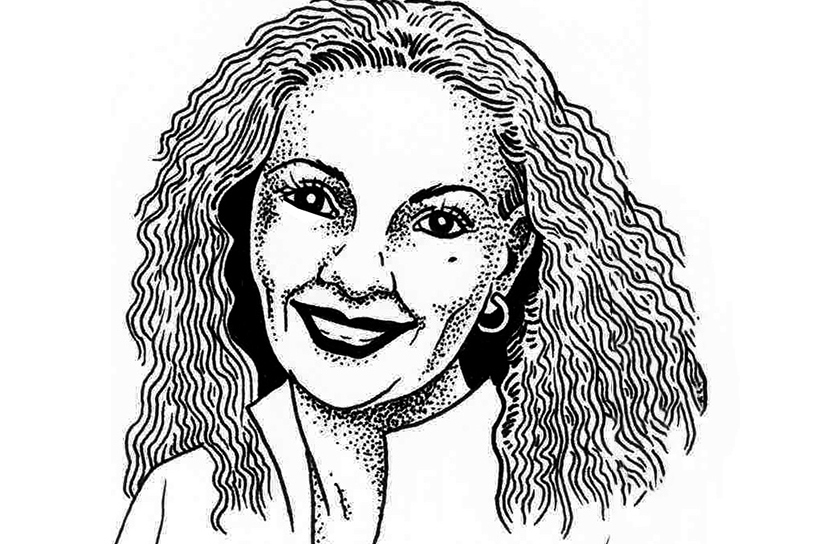In Brazil, Terry Gilliam’s 1985 dystopian masterpiece, a police officer advises a prisoner who’s about to be tortured, “Confess, quickly! If you hold out too long, you could jeopardize your credit rating.”
A generation ago, this was satire. Nowadays, the use of crippling debt to coerce defendants is just business as usual, as University of Washington sociology professor Alexes Harris shows in her new book A Pound of Flesh: Monetary Sanctions as Punishment for the Poor. In it, she documents the rise of “legal financial obligations”: fines routinely added to sentences that accrue interest while people are in prison and saddle ex-cons with unpayable debts. When the debts pile up too high, former inmates often wind up back behind bars. We asked Harris how it’s possible for debtor’s prisons to still exist in Washington in the 21st century, and what needs to happen to abolish or at least fix them. (This interview has been heavily edited for length and clarity.)
How big an issue are LFOs in WA? In Washington everyone convicted of felonies receives LFOs—a mandatory minimum of $600. Add to that 12 percent annual interest and a $100 annual collection charge. The average LFO is about $1,000 per felony conviction. LFOs are given to everybody. They’re given at the misdemeanor level, they’re given at the district court, felony level, federal level, juvenile. So everyone who comes into contact with our system of justice receives these.
Are there not protections in place for indigent defendants? Judges must make an assessment to see that the defendant had the means to pay. In effect, in Washington, willful nonpayment means a defendant comes into court and [the judge] looks at a manicure: ‘How much did you pay for your manicure? How much for cigarettes?’ There’s this very sort of ambiguous, unclarified concept of what willful means, and different judges interpret it differently.
What’s the rationale for why offenders’ debts should be accruing interest while they’re in prison, unable to make payments? Because that seems insane.[Laughs] There are different rationales, and they don’t make any sense. The rationale from some judges and policymakers is that it gives defendants an incentive to pay back their debt now, because then the interest won’t accumulate and they’ll owe more and more debt. I believe that we do need prisons. But when is enough enough? Do we want to just throw away the key and lock [offenders] up forever? Essentially that’s what we’re doing by putting up these financial barriers. They can never re-enter their lives. Poor people can’t fulfill $50,000 or $60,000 of debt at 12 percent interest and a $100 annual collection fee. They can’t ever get out of that.
What needs to change in Washington specifically? We need a clearer statute that outlines what establishes indigency and what establishes ability to pay and willful nonpayment. We need clear criteria that judges must have individualized assessments of each defendant before them and go through the criteria to see if the defendant is determined indigent. And if they’re determined indigent, they should not be required to pay any financial obligations—if they’re 150 percent below the poverty level, if they’re receiving SSI or disability, it doesn’t make sense that they’re going to have to pay the system. Many judges are saying, ‘We don’t have time to do indigency hearings, so we’re just going to give them the minimum [felony LFO of $600].’ ”
You found that often convicts’ payments will go to pay collection charges before going to the victims. Some counties in Washington do that. By statute, the victim is prioritized. But in some counties, when I analyzed the data, I saw that some counties are collecting a lot more than they’re giving out [to victims]. Nick Allen at Columbia Legal Services says some counties are taking their $100 and not calling it an LFO, they’re just calling it a service fee.
So they just change the name and it becomes legal? Apparently that’s how they’re treating it.
How can we fix this? People can use their discretion at the local level, but it’s really the statute that has to change. The Supreme Court could make a decision that could clarify some interpretations of the key legal concepts—that would be helpful. But in my mind it has to happen state-by-state in the legislatures.
And what needs to happen is clear definitions of what distinguishes someone who can’t pay from someone who can.Right. My argument is eliminate all non-restitution fines and fees, and let defendants prioritize making payments to victims directly.
Is the LFO system something that can be reformed, or should we all become revolutionaries? I don’t know. I thought going into it [that] the legislature just needs more information and they’ll come around and be smart about it. But the way we treat poor people and people of color in this country is so ingrained and institutionalized in all of our systems that I don’t know how we change it. I still have hope … [But] I don’t know what’s going to happen.








